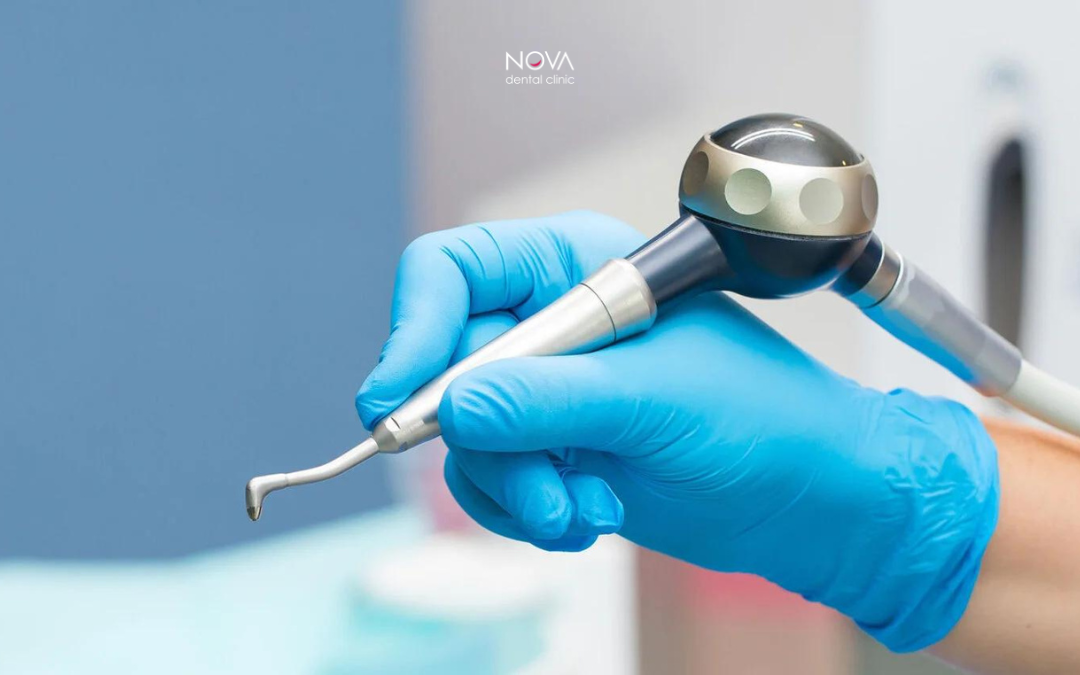
“Doctor, can we coat the teeth so they don’t get cavities anymore?”
This is a question we often hear from both pediatric and adult patients during dental visits.
While an increasing number of parents are aware of the benefits of fluoride treatments for dental health, our conversations with patients reveal some persistent misunderstandings regarding the use of fluoride in dentistry.
Can fluoride application alone prevent dental caries?
Is the topical application of fluoride in the dental office potentially toxic to the body?
Let’s address these common concerns.
What is topical fluoride application?
Topical fluoride application is one of the most important and effective preventive measures in dentistry, particularly for preventing dental caries. Fluorides strengthen the enamel structure, making it more resistant to acid attacks caused by oral bacteria. Applying fluoride between routine dental check-ups significantly reduces the risk of developing cavities and can halt the progression of early carious lesions.
This treatment involves the direct application of fluoride-containing agents to the surface of the teeth. Unlike systemic fluoridation, which involves the ingestion of fluoride through food, water, or supplements, topical fluoride therapy acts directly on the enamel, protecting it from demineralization and enhancing its resistance.
Forms of topical fluoride application include:
- Fluoride gels and pastes – Used during dental visits under controlled conditions or at home as prescribed by the dentist.
- Fluoride varnishes – Typically applied in dental offices and remain on the teeth for several minutes to ensure prolonged contact and effectiveness.
- Fluoride mouth rinses – Often recommended for home use, especially in patients with high caries risk.
How does topical fluoride protect teeth?
Topical fluoride works by promoting remineralization, which means repairing the early stages of enamel demineralization. When fluoride is incorporated into enamel, it strengthens the crystal structure, making the teeth more resistant to acid produced by cariogenic bacteria.
Why do we recommend topical fluoride treatment?
- Caries prevention – The primary benefit is the reduction in caries risk, one of the most common pediatric dental concerns. Fluorides help reinforce enamel, making it less susceptible to decay.
- Reduction in dentin hypersensitivity – Fluoride can help reduce tooth sensitivity caused by exposed dentin.
- Beneficial for both children and adults – Children, who often have less effective oral hygiene habits, benefit greatly from fluoride application.
- Efficient and cost-effective – This is a quick, affordable, and highly effective preventive procedure in maintaining oral health.
Who should receive topical fluoride treatments?
Topical fluoride application is recommended for everyone, but especially for:
- Children – They are more prone to caries due to less consistent oral hygiene. After completing restorative treatments, fluoride application is advised before the next regular check-up to minimize the risk of new cavities.
- High-risk individuals – This includes patients with special needs, xerostomia (dry mouth), those taking medications with sweeteners, and individuals with a high-sugar diet. All may significantly benefit from regular fluoride applications.
Conclusion
Topical fluoride therapy is a safe, simple, and highly effective preventive measure for protecting teeth. When combined with good oral hygiene, fluoride treatments can dramatically reduce the risk of caries and help maintain long-term dental health.
Routine dental visits and professional fluoride applications may be the key to preserving the smiles of both children and adults.
Schedule your fluoride treatment today and keep cavities away until your next check-up!











